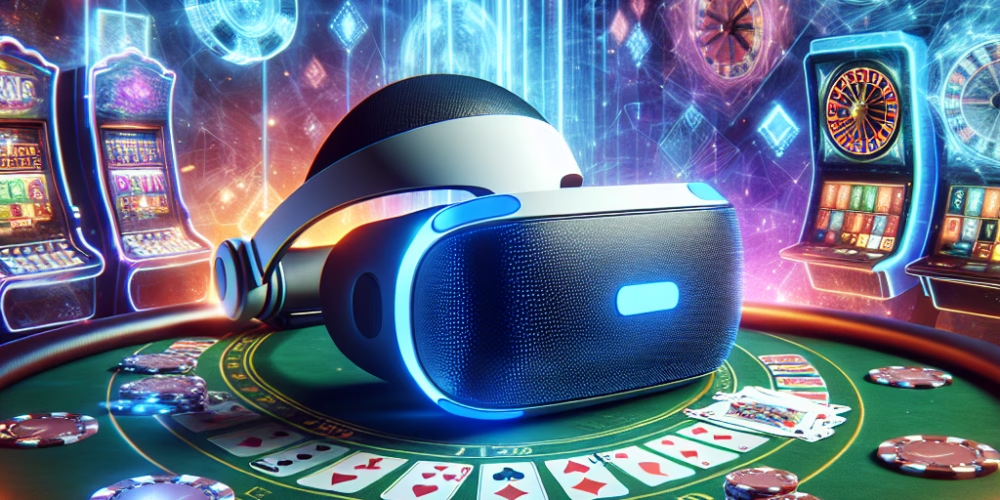In a bold fusion of technology and traditional gambling, the casino industry is making significant headway with the advent of Virtual Reality (VR) casinos. This groundbreaking trend is not only redefining what it means to “visit” a casino but also reshaping the gambling experience by offering players the thrill of Vegas-like ambiance from their homes. The recent surge in VR technology development has enabled players to immerse themselves fully in a 360-degree casino experience, interacting with a lifelike environment and other players in real time.
The Technological Leap
Virtual Reality has progressed leaps and bounds over the past few years, finding applications in various fields, from medical training to home entertainment. The gambling industry, known for its quick adoption of technological innovations, has seized VR as a tool to expand and enhance user experience. The latest VR casinos allow players to walk through digital replicas of famous casinos, sit at a poker table, pick up chips, pull slot machine handles, and enjoy a level of interaction that was once the exclusive preserve of physical casinos.
Leading the charge in the VR casino space are developers like SlotsMillion and Casino VR Poker, which provide platforms that offer realistic graphics, engaging game mechanics, and social interaction. This development not only attracts traditional players looking for convenience but also tech-savvy millennials who seek immersive gaming experiences.
The Impact on the Industry
Economically, the implications are vast. Analysts predict this new niche could lead to a substantial increase in global gambling revenue, which already amounts to hundreds of billions of dollars annually. VR casinos operate on models that offer both real money games and free-to-play options, broadening their appeal to various user demographics and preferences. Moreover, as VR headsets become more accessible and affordable, the potential customer base for VR casinos expands, thereby promising continued growth in this segment.
Despite the excitement, there are challenges. Regulatory frameworks for VR gambling are still in nascent stages. Different jurisdictions have begun considering how existing gambling laws apply to this new form of digital gambling or if new regulations are needed. Consumer adoption is also a variable dependent on technology adoption and economic factors like disposable income.
Social and Ethical Considerations
While the potential for profit and entertainment is significant, VR casinos also raise new social and ethical issues. Concerns include the risks of increased gambling addiction, given the accessibility and immersive nature of VR platforms. Moreover, ensuring the security of online gambling platforms against cyber threats is another significant concern for both users and operators.
The industry must address these potential impacts proactively. Operators are already partnering with responsible gambling initiatives to integrate features that help players manage their gambling habits, such as time limits, spending trackers, and easy access to support networks.
Industry Voices and Future Outlook
According to James Carlton, an industry analyst at Global Gaming Expo (G2E), “VR casino technology represents a convergence between the gaming industry and the tech world, offering a new way to attract younger audiences who look for dynamic and interactive gaming experiences. As VR technology becomes more mainstream, we can expect to see a significant transformation in how traditional gambling is perceived and what it can offer.”
Looking forward, the possibilities for VR in the gambling industry are vast. Innovations could extend beyond traditional casino games to include VR live concerts, sports betting arenas, and virtual reality game shows, all accessible from the comfort of one’s home.
Key Takeaways
– Virtual Reality Casinos are Transforming the Gambling Experience by offering immersive, interactive casino visits virtually.
– Economic Impact could be significant with VR casinos contributing to global gambling revenues as they attract a broader demographic.
– Challenges such as Regulation and Consumer Adoption remain, with questions about how to integrate VR with existing legal frameworks and societal norms.
– Future Prospects include not just expanded game offerings but also entirely new entertainment experiences within the VR gambling sector.
As the worlds of gaming, technology, and gambling continue to intertwine, VR casinos stand out as a particularly exciting development, promising a future where the thrill of Vegas could be just a headset away. This is not just a step but a giant leap forward for the gambling industry.

Erik Agary is a seasoned writer at True Games Reviews, specializing in gaming, casino games, and interactive entertainment. With a passion for all things digital, Erik dives deep into the latest trends and developments in the gaming world, offering insightful reviews and detailed analysis. His expertise spans across multiple gaming platforms, ensuring comprehensive coverage that resonates with both novice and experienced gamers alike.


